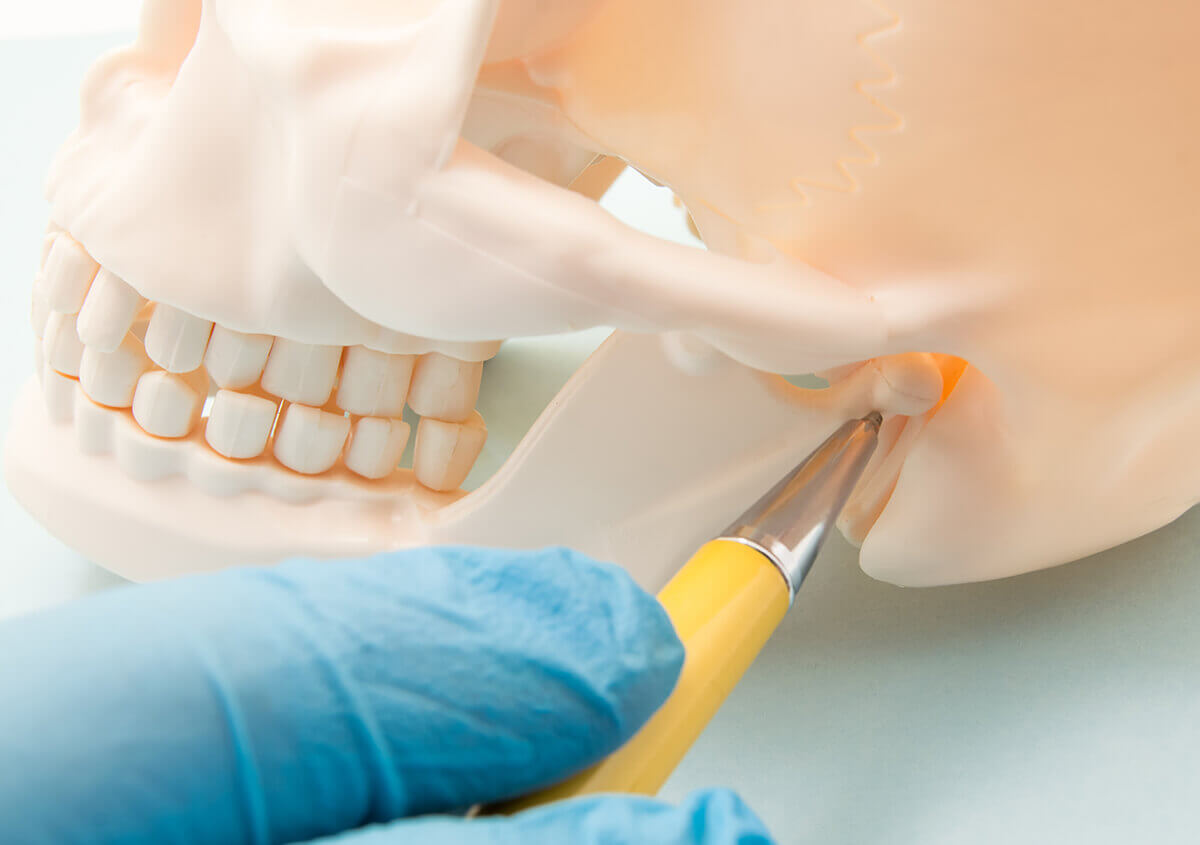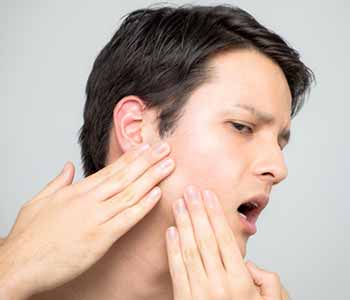
31
Dec
Effective TMJ dental treatment is available in Los Angeles, CA

Are you tired of hearing that your TMJ pain is all in your head, or that you will just have to live with it? Do you have a variety of other physical discomforts without apparent reason? Are you ready to resolve the underlying cause of these problems rather than masking symptoms with mind-dulling pain medications? Then it is time to seek dental treatment for TMJ disorders at Downtown Dental in Los Angeles, CA.
Understanding normal jaw function
Temporomandibular joints are the hinges just in front of your ears that anchor your jaw to the skull. While there are hundreds of joints in the human body, TMJs are among the most intricate, and for good reason. Most joints, like a knee or finger, only move one way. The jaw, however, serves many functions contributing to breathing, eating, communicating, and facial expressions. That means TMJs must move multiple directions – open and closed, side to side, and slide forward and back.
A complex system including the following components allows TMJs to operate smoothly:
- Joint capsules
- Articular discs
- Mandibular condyles (the rounded ends of the jaw bone)
- Ligaments
- Muscles
- Nerves
When the body and bite are not in ideal balance, however, TMJs suffer a great deal of strain.
Far-reaching TMJ dysfunction
Imagine drawing two straight perpendicular lines, except you don’t get them quite parallel to one another. The distance between them gets greater as the length of the lines increases. This illustrates what happens when the bite is not in harmony. Because your jaws sit at the top of the body, imbalance can transfer all the way to the feet!
When jaw joints cannot move easily and in unison, nerves become irritated, soft tissues inflame, and ligaments get stretched. Most of the discomfort is initially centralized in the jaw joints, however some radiates to the head. The body tries to compensate for the imbalance to relieve tension on TMJs. The posture of your head, neck, shoulders, and back may change. That eventually impacts hips, knees, and ankles.
Temporomandibular joint disorders can negatively affect overall wellness, too. You may not be able to enjoy a well-rounded, nutritious diet because of chewing limitations. In addition, jaw pain may affect sleep quality.
Symptoms and of TMD
Dysfunction of the TMJs can be caused abruptly by trauma, but more often it develops over time. Many people have suffered with it so long that they cannot clearly delineate the onset of symptoms. Here are some warning signs to consider:
- Jaw pain and stiffness
- Limited range of motion
- Jaw locks in a closed or open position
- Jaw makes grinding, clicking, or popping noises when worked
- Generalized facial pain
- Muscle spasms in the cheek area
- Earache
- Ringing in the ears or other ear noises
- Dizziness
- Headaches
- Migraines
Temporomandibular joint disorders are also linked to bruxism. It is believed that the discomfort of TMD causes some people to clench and grind their teeth, which in turn irritates jaw joints even more. This can add tooth sensitivity and cracked or worn-down teeth to the list of symptoms.
Find personalized TMJ dental treatment at Los Angeles, CA practice

In the care of Dr. Don Mungcal, your TMJ dental treatment plan is as unique as your symptoms. Dr. Mungcal begins with a comprehensive examination of your mouth to evaluate oral health, and an analysis of bite. He talks with you about lifestyle habits and stressors, and compassionately discusses the range of your symptoms in detail. Then he works with you to develop a strategy to help you enjoy a comfortable, fully-functioning mouth.
Dental treatment may consist of bite adjustment, which could be as simple as modifying the shape of tooth crowns or replacing old, ill-fitting dental restorations. In some cases, orthodontic treatment with Invisalign clear braces is recommended. Topical fluoride application helps to relieve tooth sensitivity.
Most TMJ sufferers benefit greatly from a night guard. This oral appliance is made just for you, from impressions of your mouth, to fit snugly and comfortably. It repositions the mouth, reducing stress on jaw joints. The split also cushions bite force from bruxing and distributes it more evenly over the entire upper and lower arches.
There are two important things to know if you think you might have TMJ problems. First, your discomfort is real, and it deserves proper attention. Second, effective dental treatment is available in Los Angeles, CA. Call Downtown Dental at 213-863-9464 to schedule an appointment.
Share this Article
![Dr. Don Mungcal]()
Dr. Don Mungcal
![Dr. Tara Mavadat]()
Dr. Tara Mavadat
![Dr. Ivan Chan]()
Dr. Ivan Chan
With over 28 years of experience and service, Dr. Mungcal makes it his responsibility to be the best version of himself by being his patients’ go-to point for any and all dental concerns. In addition to being meticulous in his work ethic, he is also an individual who understands development and change. He updates and informs himself constantly through various continuous educational programs that he undertakes. He also invests in the latest state-of-the-art technology to provide world-class dental services.
Dr. Mungcal graduated from UCLA and the University of the Pacific Dental School and is presently a member of several acclaimed medical associations, including the California Dental Society.
Dr. Tara Mavadat was always passionate about dentistry and is committed to helping patients achieve excellent oral health and beautiful smiles that last long. Having earned her Doctor of Dental Surgery degree from the University of the Pacific Dugoni School of Dentistry, she focuses on comprehensive general dentistry with an emphasis on preventive dentistry. Her primary goals are to provide comfort and quality as well as exceptional esthetic outcomes to every patient.
Dr. Ivan Chan is enthusiastic about dentistry and his patients' oral health and is dedicated to providing compassionate and effective care. He is a highly skilled dentist who received his undergraduate degree from the University of California, San Diego. He earned his Doctor of Dental Surgery (DDS) at the University of California, San Francisco School of Dentistry.
Dr. Chan has extensive training in general dentistry. He focuses on creating lasting smiles while attempting to prevent gum disease and cavities. He looks forward to assisting you with all your needs while assuring you that your trust is always in good hands, regardless of your needs!



